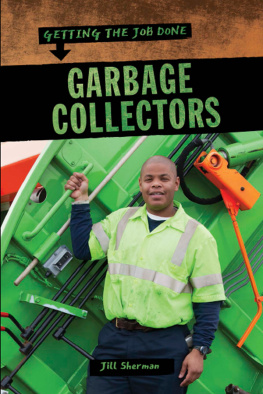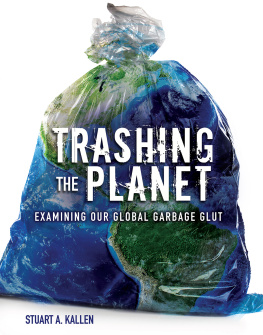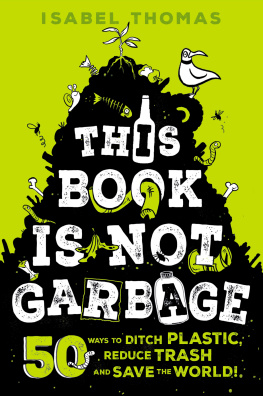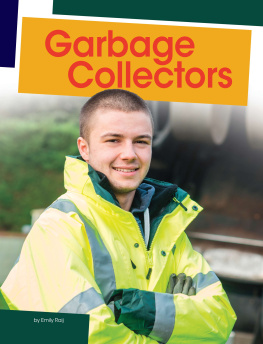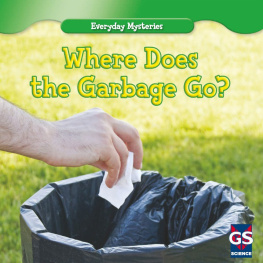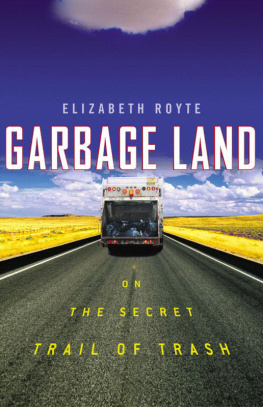Published in 2020 by The Rosen Publishing Group, Inc. 29 East 21st Street, New York, NY 10010
Copyright 2020 by The Rosen Publishing Group, Inc.
All rights reserved. No part of this book may be reproduced in any form without permission in writing from the publisher, except by a reviewer.
First Edition
Editor: Greg Roza
Book Design: Reann Nye
Photo Credits: Cover Don Mason/Getty Images; p. 5 360b/Shutterstock.com; p. 6 InStock/ Image Source/Getty Images; p. 7 Library of Congress/Getty Images; p. 8 PeopleImages /E+/Getty Images; p. 9 Paolo Bona/Shutterstock.com; p. 11 Joseph Sohm/Shutterstock.com; p. 12 vchal/Shutterstock.com; p. 13 Digital Light Source/ Universal Images Group/Getty Images; p. 15 Don Mason/Getty Images; pp. 17, 22 Kzenon/Shutterstock.com; p. 19 Andrey_Popov/Shutterstock.com; p. 21 4x6/ iStock/Getty Images Plus/Getty Images.
Cataloging-in-Publication Data
Names: Sherman, Jill.
Title: Garbage collectors / Jill Sherman.
Description: New York : PowerKids Press, 2020. | Series: Getting the job done | Includes glossary and index.
Identifiers: ISBN 9781725300040 (pbk.) | ISBN 9781725300064 (library bound) | ISBN 9781725300057 (6pack)
Subjects: LCSH: Sanitation workers--Juvenile literature. | Refuse collectors--Juvenile literature. | Refuse collection--Juvenile literature. | Refuse and refuse disposal--Juvenile literature.
Classification: LCC HD8039.S257 S54 2020 | DDC 628.442023--dc23
Manufactured in the United States of America
CPSIA Compliance Information: Batch #CSPK19. For Further Information contact Rosen Publishing, New York, New York at 1-800-237-9932.
TAKING OUT THE GARBAGE
Every day, people throw away their garbage without thinking twice. Many things, such as pizza boxes and other takeout containers, are considered trash. In many places, people put their garbage bins on the curb to be collected every week. Once its taken away, we often never think about our garbage again. Garbage collectors make this possible.
Garbage collectors, also called sanitation workers, play an important role in our communities. They help keep our communities and homes clean. Being a garbage collector means working long hours and doing hard, dirty work. Do you have what it takes to do this job?
Fascinating Career Facts
Garbage collectors keep us and Earth healthy. If trash piles up, the ground may absorb it, or soak it up. Garbage that the ground absorbs can pollute the land, attract pests, and cause sicknesses.
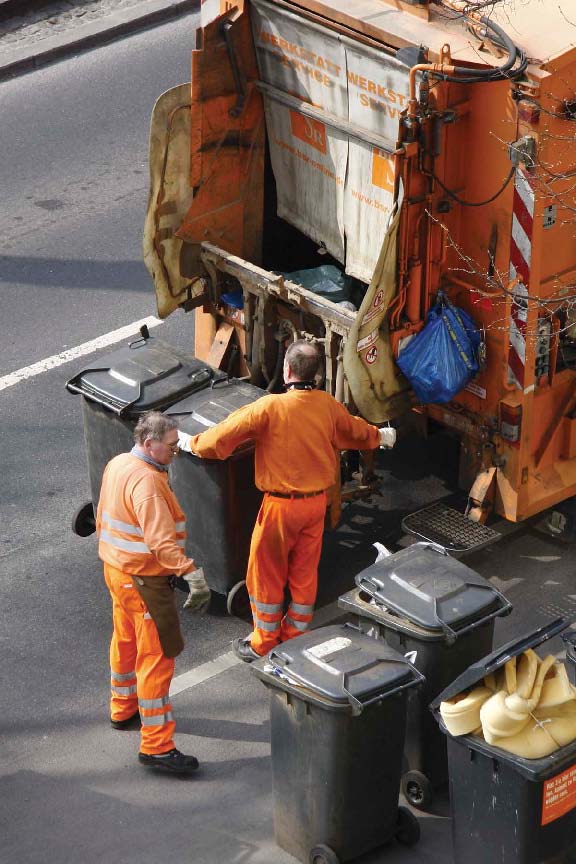
Garbage collectors dump bags and bins full of garbage into trucks every day. The trucks haul it to a landfill where it is buried.
OUR FILTHY PAST
For many years, people took care of their own garbage. It was buried, burned, and fed to farm animals. As cities got bigger, trash became a bigger problem. People tossed it onto the street and it piled up. The waste got into drinking water and made people sick.
Fascinating Career Facts
Garbage collectors are often referred to as garbagemen. However, women are garbage collectors, too. In 2008, New York City employed 7,000 garbage collectors and more than 200 of them were women.
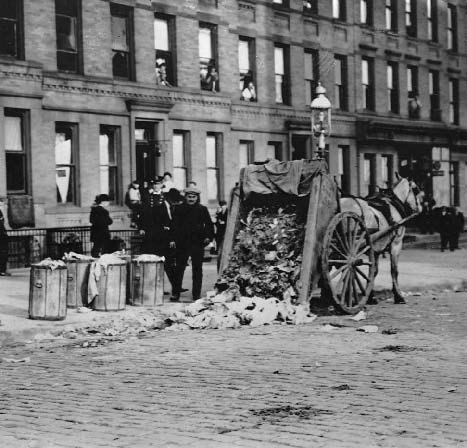
Early garbage collectors cleaned up trash that gathered in the street.
In 1757, Benjamin Franklin started the first street cleaning service in America. Garbage collectors hauled waste out of cities on carts. Sometimes the garbage was burned. As technology improved, so did garbage collection. Over time, cities and towns everywhere began employing garbage collectors to help keep the streets clean.
A DIRTY JOB
Garbage collectors start their day early in the morning. Every day, they travel a different route. This way, they can cover the entire city or town during a week. Garbage collectors may visit 1,000 homes in a day. One person drives the garbage truck. Two other people ride on the back of the truck and pick up the garbage bins.
Fascinating Career Facts
The longer your garbage sits, the smellier it gets! Garbage collectors hardly notice how smelly garbage is because, after just a few minutes, their brain blocks it out.
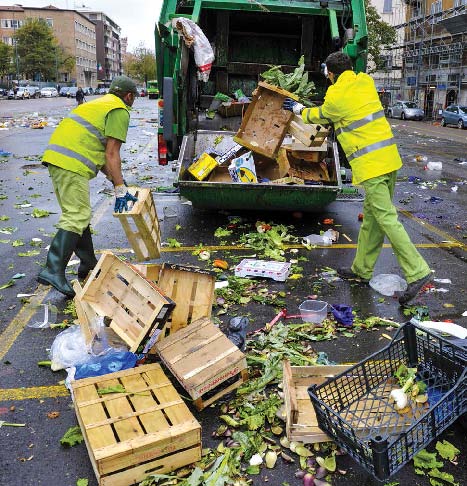
Events such as festivals and food markets can leave city streets filled with trash. Its up to garbage collectors to clean up the mess!
Not everyone gets rid of their garbage the right way. Some people put large tree limbs or furniture out for collection. To take these things away, garbage collectors have to spend time breaking it into pieces. Other people overfill their garbage bags, which tear when lifted and create a big mess.
WASTEPROFESSIONALS
Garbage collectors are waste professionals. They know that not all kinds of waste should be mixed. To make garbage collectors jobs easier, you should separate your waste by type. There are four types of waste: yard waste, construction waste, household waste, and hazardous waste.
Hazardous waste cant be collected with your regular waste on garbage day. Many cities hold hazardous waste dropoff days where you can bring things such as paint, oil, tires, and old electronics to a special place. From there, the hazardous waste is disposed of or recycled properly. Unfortunately, most cities only hold these drop-off days a few times a year.
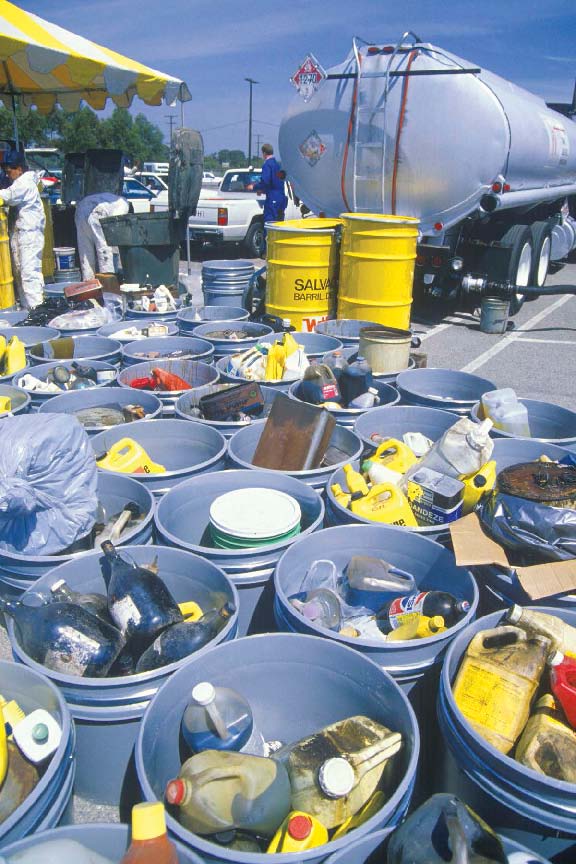
Check your citys website to find out when the next household hazardous waste drop-off day is. It might be sooner than you think!
WHERE DOES OUR GARBAGE GO?
Where your trash goes depends on where you live. Trash from many cities ends up in a landfill. Before it gets there, your garbage goes to a transfer station where its offloaded, compacted, and loaded into bigger trucks. Then itll be taken to a landfill.
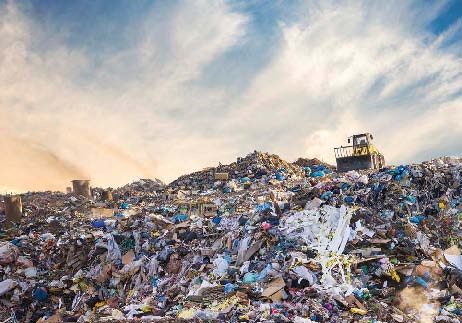
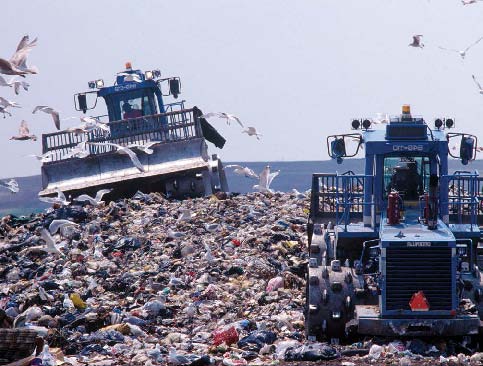
The Fresh Kills Landfill on Staten Island, New York, was opened in 1948 and closed in 2001. This landfill was one of the biggest landfills in the world.
About 52 percent of the United States garbage goes to landfills. Landfills are deep pits that are lined with clay and plastic sheets so hazardous chemicals dont leak into the ground. When the landfill gets full, it is covered with another sheet of plastic and dirt. The garbage decomposes, or breaks down, but this takes a long time.
SAFETY FIRST
Dealing with garbage is a dirty business. Garbage collectors must protect themselves from whatever is hiding inside our garbage bags and bins. If people put glass or hazardous waste in their garbage, it might hurt a garbage collector. To protect themselves, garbage collectors wear work gloves, long-sleeved shirts, and long pants. Being a garbage collector is also a noisy job. Garbage collectors wear earplugs or earmuffs to protect their hearing.

